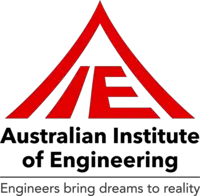
How do I become a engineering tradesperson?
Certificate III in Engineering - Mechanical Trade (Machining Trade)
- There are no mandated entry requirements.



Certificate III in Engineering - Fixed and Mobile Plant Mechanic
- There are no mandated entry requirements.







Certificate III in Engineering - Composites Trade
- There are no mandated entry requirements.


Certificate II in Engineering Pathways
- There are no mandated entry requirements.








Certificate II in Sustainable Energy (Career Start)
- There are no mandated entry requirements.


Certificate III in Engineering - Technical
- There are no mandated entry requirements.







Certificate I in Engineering
- There are no mandated entry requirements.








Certificate II in Engineering Studies
- There are no mandated entry requirements.






Related occupations
Planning Engineer
Planning Engineers manage civil engineering projects from design to completion, ensuring proper materials and budgeting for structures like roads and bridges.
Draftsperson
A Draftsperson creates technical drawings for construction or manufacturing, using CADD systems or traditional methods across various industries.
Civil Engineer
Civil Engineers design and create infrastructure like buildings, bridges, and roads, collaborating with various professionals to realise their plans.
Apprentice Engineer
An Apprentice Engineer trains in creating and maintaining machinery parts, uses various tools, and must follow instructions, work in teams, and be adaptable.
Advanced Engineering Tradesperson
An Advanced Engineering Tradesperson handles complex projects, using tools and machinery, leading teams, and ensuring quality and safety standards.
CAD Operator
CAD Operators create construction design drawings, using software to meet standards and collaborate with architects and engineers.
Hydraulic Designer
A Hydraulic Designer plans plumbing systems, focusing on rainwater distribution, waste treatment, and multitasking efficiently.
Research Engineer
A Research Engineer develops and tests new engineering products and systems, solving problems with existing processes while requiring strong analytical and communication skills.
Geotechnical Engineer
A Geotechnical Engineer conducts soil and groundwater analysis, designs foundations, and ensures safety compliance across infrastructure and mining projects.
Development Engineer
A Development Engineer designs and oversees construction projects, ensuring compliance with regulations and effective communication with stakeholders.
Naval Architect
A Naval Architect designs ships and marine vessels, developing innovative solutions, meeting client needs, and adapting skills for varied projects.
Asset Engineer
An Asset Engineer manages equipment installation and maintenance, conducting tests, repairs, and ensuring compliance while collaborating with a team.
Engineering Consultant
An Engineering Consultant advises on construction projects, monitors progress, recommends materials, and ensures compliance with regulations.
Forensic Engineer
A Forensic Engineer investigates structural failures to determine causes and recommend solutions, preparing detailed reports on findings.
Fire Engineer
A Fire Engineer minimises fire risks in structures, assesses existing buildings, recommends improvements, and develops strategies for fire resistance.
Structural Engineer
A Structural Engineer designs, tests, and ensures the safety of structures, selecting materials and overseeing development while ensuring compliance.
Civil Designer
A Civil Designer manages civil engineering projects, designs infrastructure, selects materials, and evaluates sites, ensuring safety and adherence to procedures.
Site Engineer
A Site Engineer coordinates civil construction projects, ensures timely progress, manages resources, monitors costs, and maintains stakeholder communication.
Architectural Engineer
An Architectural Engineer designs and manages the construction of buildings, ensuring they are functional, safe, and aesthetically pleasing while adhering to regulations.
Geospatial Engineer
A Geospatial Engineer uses engineering principles and GIS technologies to collect and analyse geographic data for urban planning and infrastructure.
Building Services Engineer
A Building Services Engineer designs and manages essential systems like HVAC and plumbing to ensure buildings are functional, comfortable, and efficient.
Hydraulic Engineer
A Hydraulic Engineer designs fluid management systems, focusing on efficiency and safety in water treatment and infrastructure projects.
Coastal Engineer
A Coastal Engineer designs and manages projects to protect coastlines and infrastructure, focusing on erosion mitigation and sustainable development.
Construction Engineer
A Construction Engineer manages the planning and execution of infrastructure projects, ensuring they are completed safely, on time, and within budget.
Water Resource Engineer
A Water Resource Engineer designs and manages systems for sustainable water use, ensuring efficient distribution, compliance with regulations, and environmental conservation.
Transport Engineer
Transport Engineers plan and manage transportation systems, ensuring safe and efficient movement while addressing connectivity and congestion issues.
Railway Engineer
A Railway Engineer designs, builds, and maintains railway systems to ensure safe and efficient train operations while managing projects and collaborating with stakeholders.
Civil Design Engineer
A Civil Design Engineer creates safe, sustainable infrastructure designs like roads and bridges, collaborating with teams to meet regulatory standards.
Water Engineer
A Water Engineer designs and manages water systems, ensuring their safe, efficient, and sustainable use to meet community needs.
CAD Designer
A CAD Designer creates precise technical drawings using CAD software, collaborating with engineers and architects to ensure compliance with standards.
Engineering Technologist
An Engineering Technologist uses engineering principles to solve technical problems, focusing on the practical implementation of designs and ensuring project compliance.
Junior Engineer
A Junior Engineer assists senior engineers in designing and maintaining projects, conducting inspections, and analysing data to ensure success.
Infrastructure Engineer
An Infrastructure Engineer designs and maintains essential systems like roads and bridges, ensuring they are safe, efficient, and sustainable.
Engineering Technician
An Engineering Technician supports engineers in designing and maintaining systems across various sectors, ensuring project standards and efficiency.
Civil Engineering Technician
A Civil Engineering Technician assists in designing infrastructure projects, ensuring compliance with standards while managing materials and monitoring progress.
Structural Project Manager
A Structural Project Manager oversees structural projects, ensuring they meet specifications, safety standards, and budgets while coordinating teams and resolving issues.
Facade Engineer
A Facade Engineer designs and supervises building facades to ensure functionality and aesthetics while ensuring structural integrity and energy efficiency.
Fire Protection Engineer
A Fire Protection Engineer designs fire safety systems to protect buildings and occupants, ensuring compliance with safety regulations.
Bridge Engineer
A Bridge Engineer designs and oversees bridge construction and maintenance, ensuring safety and functionality while collaborating with stakeholders on projects.
Tunnel Engineer
A Tunnel Engineer designs and maintains tunnels for transport and utilities, ensuring safety and efficiency while collaborating with diverse teams.
Common questions
How much does an Engineering Tradesperson earn?
In Australia, a full time Engineering Tradesperson generally earns $1,200 per week ($62,400 annual salary) before tax. This is a median figure for full-time employees and should be considered a guide only. As you gain more experience you can expect a potentially higher salary than people who are new to the industry.
What are the job opportunities for an Engineering Tradesperson?
The number of people working in this industry has grown strongly over the last five years. There are currently 56,100 people working in this field in Australia and many of them specialise as an Engineering Tradesperson. Engineering Tradespeople may find work across all regions of Australia.
Source: Australian Government Labour Market Insights
How do I become an Engineering Tradesperson?
If you’re interested in becoming an Engineering Tradesperson, consider enrolling in a Certificate I in Engineering. You could also consider a Certificate II in Engineering Pathways, a Certificate III in Engineering Studies, a Certificate II in Sustainable Energy (Career Start) or a Certificate III in Engineering – Technical.
Further reading


Most popular manufacturing courses
19th July 2022)

